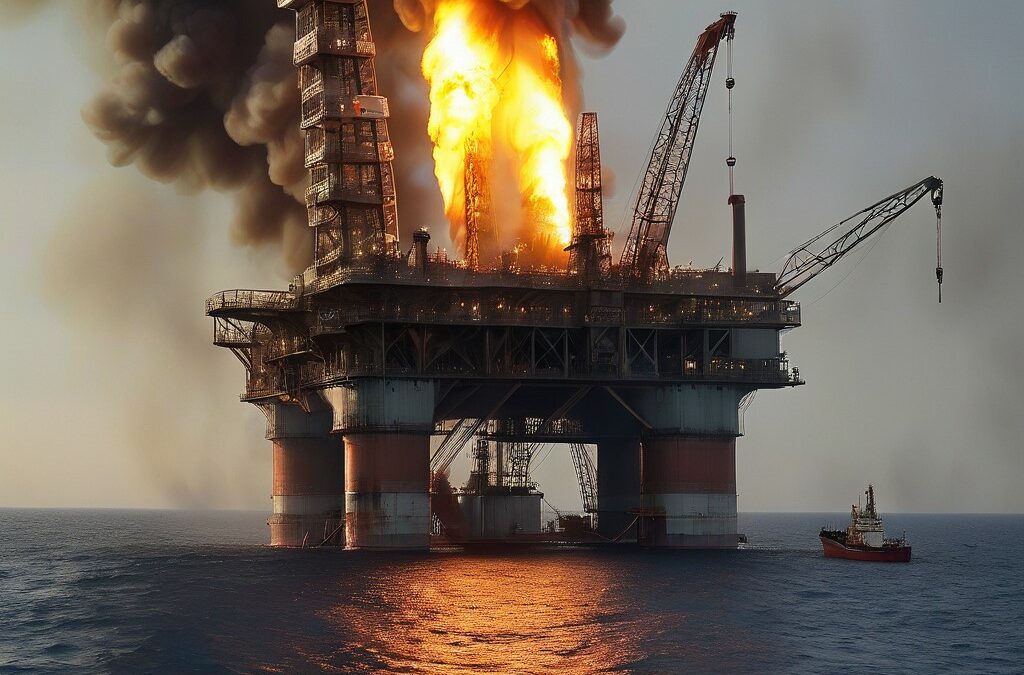The cart is empty!
Mastering Structural and Human Safety: The Crucial Role of PFP Training
Passive Fire Protection (PFP) encompasses materials and systems integrated into steel structural frameworks to prevent collapse and the advance of fire and smoke. In doing so, PFP plays a crucial role in not only preserving the integrity of the structure, but also in ensuring personnel safety.
Indeed, PFP is a core element in fire safety, with specific goals that include:
- Preventing collapse during a fire event
- Facilitating containment of a fire
- Securing safe evacuation routes for personnel
- Preventing loss of life
Professionals in this field shoulder great responsibility. To carry out their roles to the standards required, exceptional training and certification is required.
In this article, we present a guide for individuals looking to enter the field of Passive Fire Protection Inspection, covering the basics, qualifications, and the Passive Fire Protection Course that will be your first step.
PFP: Components and Systems
Unlike many fire protection mechanisms that demand activation to function, PFP is inherently passive, requiring no external activation or trigger to perform its safeguarding duties.
PFP materials used for area protection in the oil, gas, and energy industries are predominantly coating materials that are spray applied. They are applied to the structure of an asset but also to divisions such as bulkheads and underdecks. In addition to spray-applied materials, ‘dry fix’ products are used (such as penetration seals, jackets, and enclosures, which have been designed and fire tested to meet specific requirements).
Each of these components is meticulously designed to fulfil a specific role within the PFP matrix. They work together to compartmentalise fire and prevent its spread. PFP inspectors must understand how all these components interplay. This necessitates a depth of knowledge and experience beyond basic knowledge – hence the crucial nature of Passive Fire Protection Courses.
Gaining Professional Qualifications for PFP Inspection
Having a qualification in protective coatings inspection is a prerequisite for advancement to PFP inspection.
PFP Inspectors must exceed traditional coatings inspection knowledge to possess a comprehensive understanding of the specific PFP materials and installation requirements. It’s a distinction that underlines the complexity of PFP inspections and, by association, the critical importance of specialised training and experience.
The ICorr PFP Inspector training courses, developed in alliance with PFPNet – a recognised industry-leading organisation dedicated to improvement of knowledge, understanding and competency in the oil, gas, and energy industries – stand as a testament to the specialised nature of PFP inspection.
When you gain an ICorr accredited qualification in PFP inspection, not only does this certify your proficiency in this intricate field, but it also lays a robust foundation for career progression in an increasingly crucial domain.
Delivering Key Skills and Knowledge for PFP Inspectors
Minor oversights during PFP inspection can have major consequences. Therefore, a meticulous and thorough approach is demanded of the work. It’s a high stakes profession.
ICorr’s PFP courses deliver technical expertise with a detailed approach, aligned with the requirement for PFP inspectors to possess an advanced technical understanding of fire protection materials and systems, an ability to interpret complex structural plans, and a keen eye for detail.
In addition to this, PFP inspectors must have a good knowledge of fire safety standards and regulations. From project documentation, a PFP Inspector needs to understand the fire standards and ratings that are being achieved by installation of PFP on the project he or she is working on. Being able to understand third-party certification of the products used and how this complies with the project specification is one example of necessary competency.
ICorr’s PFP qualification provides solid training and essential certification for PFP inspectors, and is instrumental in establishing a standardised competency benchmark for professionals in the field.
Career Pathways in PFP Inspection
As fire safety evolves, so too do the opportunities for PFP inspectors. The continuing advances in materials science, inspection technologies, and regulatory requirements for personnel safety promise to expand the scope and impact of their work, underscoring the ever-growing importance of specialised training and professional development in this life-saving domain.
In short, from entry-level positions to senior roles, your career progression in this exciting and critical field is deeply intertwined with continual professional development, experience, and specialised training.
The ICorr qualification is recognised as a cornerstone of your professional development, and serves as the springboard for a clear career trajectory for those committed to excellence in fire safety.
PFP Inspection Course – The First Step in a Rewarding career
PFP is a field in which specialised knowledge isn’t simply a nice-to-have – it is a critical necessity. PFP systems may be designed to preserve a structure’s integrity, but their priority, as is the priority of PFP inspectors, is to ensure the safety of all those who use that structure. Consequently, the intricacies of PFP systems and the vital role of inspectors mandates comprehensive training, qualification, and certification.
Courses developed by ICorr, in collaboration with PFPNet, offer the foundational expertise required for a successful career in this critical domain. Achieving an ICorr-accredited qualification signifies a readiness to meet the challenges of fire safety, in a career in PFP inspection dedicated to ensuring the wellbeing and safety of communities worldwide.
Want to know more about the ICorr Passive Fire Protection Courses? For more information, please reach out to the admin team at ICorr or email IMechE Argyll Ruane.


